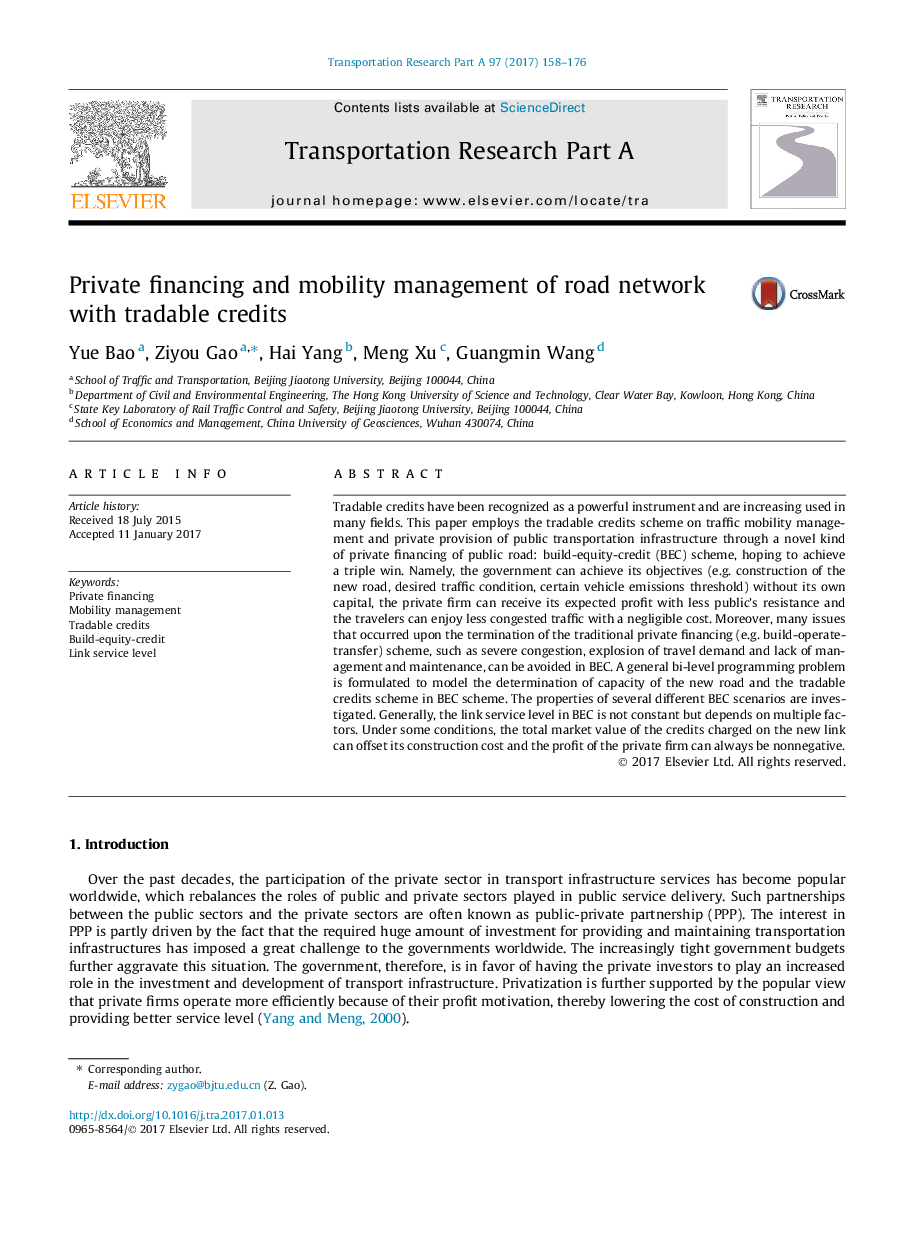| Article ID | Journal | Published Year | Pages | File Type |
|---|---|---|---|---|
| 4929164 | Transportation Research Part A: Policy and Practice | 2017 | 19 Pages |
Abstract
Tradable credits have been recognized as a powerful instrument and are increasing used in many fields. This paper employs the tradable credits scheme on traffic mobility management and private provision of public transportation infrastructure through a novel kind of private financing of public road: build-equity-credit (BEC) scheme, hoping to achieve a triple win. Namely, the government can achieve its objectives (e.g. construction of the new road, desired traffic condition, certain vehicle emissions threshold) without its own capital, the private firm can receive its expected profit with less public's resistance and the travelers can enjoy less congested traffic with a negligible cost. Moreover, many issues that occurred upon the termination of the traditional private financing (e.g. build-operate-transfer) scheme, such as severe congestion, explosion of travel demand and lack of management and maintenance, can be avoided in BEC. A general bi-level programming problem is formulated to model the determination of capacity of the new road and the tradable credits scheme in BEC scheme. The properties of several different BEC scenarios are investigated. Generally, the link service level in BEC is not constant but depends on multiple factors. Under some conditions, the total market value of the credits charged on the new link can offset its construction cost and the profit of the private firm can always be nonnegative.
Keywords
Related Topics
Physical Sciences and Engineering
Engineering
Civil and Structural Engineering
Authors
Yue Bao, Ziyou Gao, Hai Yang, Meng Xu, Guangmin Wang,
